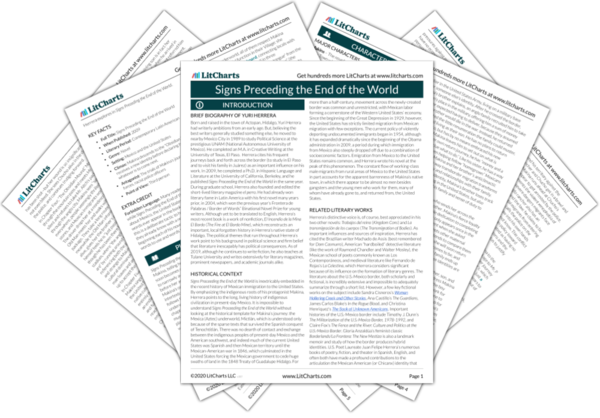Although Makina has no idea what to expect, fate—or the men from the Little Town—have set up a path across the river for her. Here, Chucho is presented as a stereotype of a traditional migration narrative’s protagonist: the macho patriarch who makes it across the border and succeeds in the U.S. using his physical strength. Personable and caring rather than greedy, manipulative, or sexually opportunistic, he is also the opposite of the typical coyote (human smuggler) encountered in such narratives. Herrera pokes fun at this ironic reversal in Chucho’s character—a manly hero transformed into a woman’s assistant—with this first image of Chucho crossing the river in a comically small, ill-fitting inner tube.
